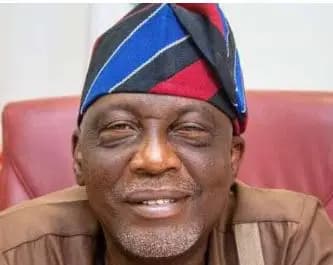In a powerful rebuttal to growing concerns about Nigeria’s political landscape, Senate Minority Leader Senator Abba Moro has firmly dismissed fears that the country is on the brink of slipping into a one-party state. Speaking with conviction, Moro, who represents Benue South, emphasized the enduring strength of the Peoples Democratic Party (PDP) as a formidable opposition force capable of counterbalancing the ruling All Progressives Congress (APC). His remarks come at a time when Nigeria’s democratic future is under intense scrutiny, with many questioning whether the APC’s dominance could erode the nation’s multi-party system.
Moro’s statement is a clarion call to Nigerians who value the dynamism of a pluralistic democracy. He underscored the PDP’s deep roots across the country, describing it as a party with a national presence that remains a viable alternative to the APC. “The PDP is not just a political party; it is a movement woven into the fabric of Nigeria’s political history,” Moro declared, pointing to the party’s legacy as the ruling party from 1999 to 2015. He argued that the PDP’s widespread support base and its historical role in shaping Nigeria’s democratic institutions make it an indispensable player in ensuring the country does not slide into one-party rule.
The senator’s remarks come against the backdrop of recent political developments that have fueled speculation about Nigeria’s democratic trajectory. The APC’s sweeping victories in the 2023 general elections, coupled with defections of prominent opposition figures to the ruling party, have raised concerns among political analysts and citizens alike. Critics have warned that a weakened opposition could lead to unchecked governance, diminishing accountability and stifling democratic debate. However, Moro remains optimistic, asserting that the PDP is actively working to overcome its internal challenges and emerge stronger.
Central to Moro’s argument is the PDP’s ongoing efforts to resolve its internal conflicts. The party has faced significant turmoil in recent years, including leadership disputes and factionalism, which have weakened its ability to present a united front. Moro acknowledged these challenges but highlighted the proactive steps being taken by the party’s leadership to mend rifts and rebuild cohesion. “The PDP is not oblivious to its challenges,” he said. “Our leaders are working tirelessly to reconcile aggrieved members and strengthen our structures. This is a party that listens, adapts, and evolves.”
Moro’s confidence in the PDP’s resilience is rooted in its historical ability to weather storms. He recalled the party’s role in Nigeria’s democratic journey, from its formation in 1998 to its 16-year tenure as the ruling party. Even after losing power to the APC in 2015, the PDP has remained a significant force, securing governorships and legislative seats across the country. Moro pointed to states like Benue, where the PDP continues to enjoy strong support, as evidence of its enduring appeal. “The PDP is alive in every corner of Nigeria,” he said. “From the North to the South, East to West, our members are committed to keeping the party strong.”
Beyond the PDP’s internal efforts, Moro emphasized the broader importance of a robust opposition in safeguarding Nigeria’s democracy. He argued that a healthy democracy thrives on competition, accountability, and diverse perspectives. “A one-party state is not just a threat to the opposition; it is a threat to every Nigerian who values freedom, choice, and progress,” he warned. By maintaining a strong opposition, the PDP ensures that the APC remains accountable to the Nigerian people, fostering a political environment where policies are debated, and governance is scrutinized.
Moro also called on PDP members to remain steadfast and loyal to the party’s ideals. He urged them to resist the temptation to defect to the APC, emphasizing that the PDP’s strength lies in its unity. “Our members must see the bigger picture,” he said. “This is not just about personal ambition; it is about preserving Nigeria’s democratic soul.” His call to action resonates in a political climate where defections have become a common tactic, often driven by promises of power or patronage.
The senator’s remarks have sparked reactions across Nigeria’s political spectrum. Supporters of the PDP have hailed Moro’s statement as a rallying cry for the party’s revival, while critics argue that the PDP must back its words with concrete actions to regain public trust. Political analysts note that the PDP’s ability to resolve its internal crises and present a compelling vision for Nigeria will be critical in the lead-up to the 2027 elections. For now, Moro’s message serves as a reminder that Nigeria’s democracy is a collective responsibility, requiring active participation from all stakeholders.
As Nigeria navigates its complex political landscape, Senator Abba Moro’s words offer both reassurance and a challenge. The PDP, he insists, is not only capable of preventing a one-party state but is also poised to reclaim its position as a leading force in Nigerian politics. For Nigerians watching closely, the question remains: can the PDP rise to the occasion and restore faith in the opposition? Only time will tell, but Moro’s unwavering optimism suggests that the battle for Nigeria’s democratic future is far from over.
Join our Whatsapp channel to stay updated always!


